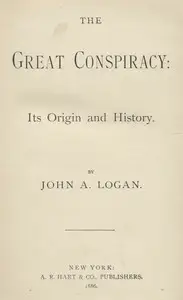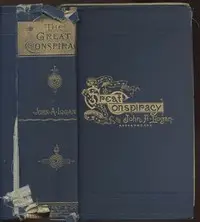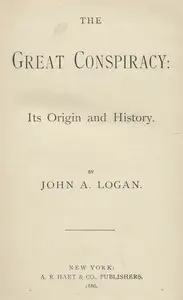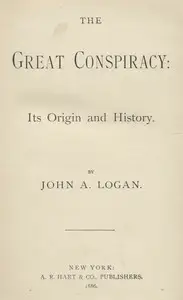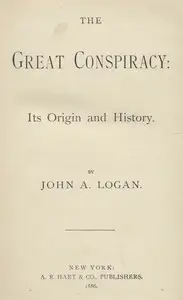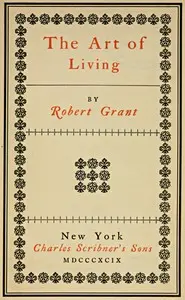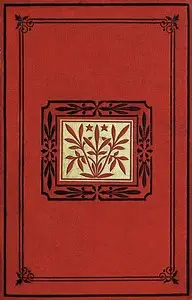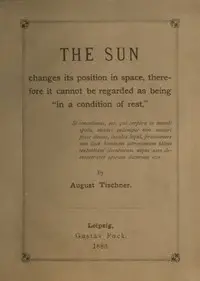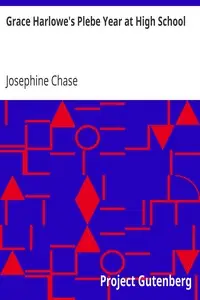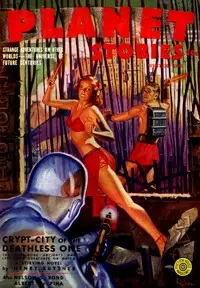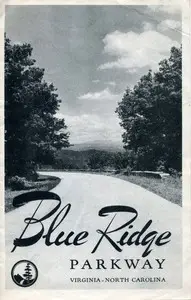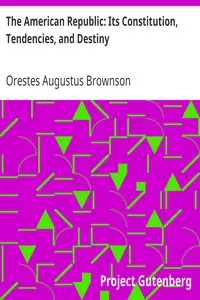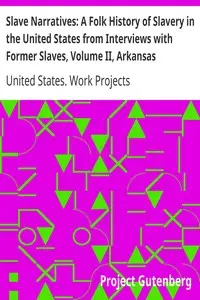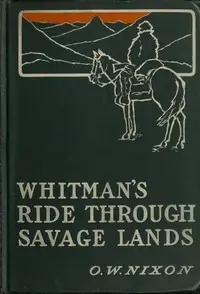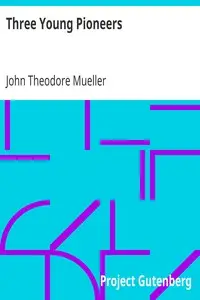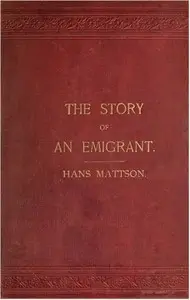"The Great Conspiracy, Volume 6" by John Alexander Logan is a historical account likely written in the late 19th century. It focuses on the intricate events surrounding American Civil War politics, particularly President Abraham Lincoln’s Emancipation Proclamation and the subsequent fight to enshrine emancipation in the Constitution. The narrative likely examines key battles, legislation, and the roles played by various political factions during this tumultuous period. At the start of the book, the narrative delves into President Lincoln's unwavering support for the Emancipation Proclamation and the necessity of incorporating it into the United States Constitution to safeguard the freedoms of emancipated individuals. The opening recounts pivotal military victories for the Union, such as Gettysburg and Vicksburg, which shifted the national sentiment towards hope. However, it also highlights the opposition from Democrats and sympathizers of the Confederacy, culminating in violent draft riots in New York City. Lincoln's subsequent appeals for congressional action, the debate around the Thirteenth Amendment, and eloquent speeches emphasize the urgency and complexity of these issues, setting the stage for the political machinations and social struggles that defined the era. (This is an automatically generated summary.)
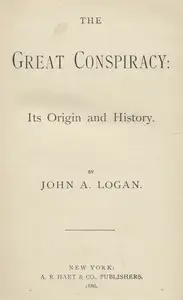
The Great Conspiracy, Volume 6
By John Alexander Logan
"The Great Conspiracy, Volume 6" by John Alexander Logan is a historical account likely written in the late 19th century. It focuses on the intricate ...
Genres
Released
2004-06-01
Formats
epub
mobi
epub (images)
epub3 (images)
mobi (images)
Free Download
Overview
About the Author
John Alexander Logan was an American soldier and politician. He served in the Mexican–American War and was a general in the Union Army in the American Civil War. He served the state of Illinois as a state Representative, a U.S. Representative, and a U.S. Senator and was an unsuccessful candidate for Vice President of the United States as James G. Blaine's running mate in the election of 1884. As the 3rd Commander-in-Chief of the Grand Army of the Republic, he is regarded as the most important figure in the movement to recognize Memorial Day as an official holiday.
Total Reviews
10.0k
Total reviews from Goodreads may change


